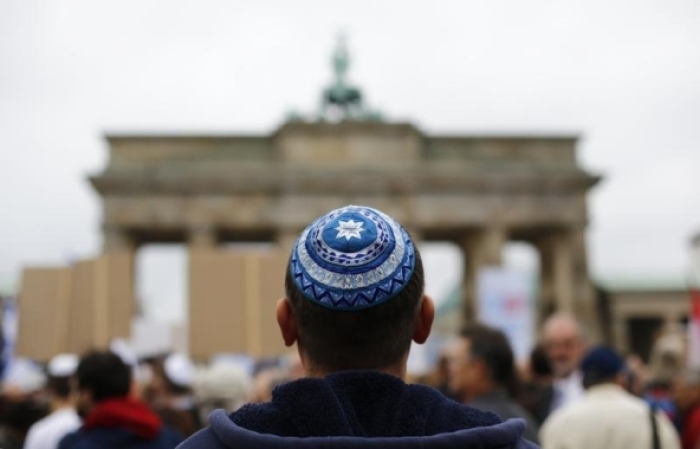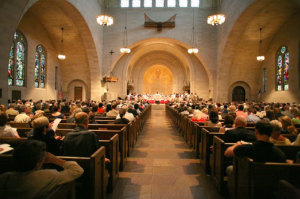Rabbi urges Christians, Jews to work together: ‘We have more in common than what divides’

ORLANDO — Rabbi Tuly Weisz, the founder of Israel 365, believes it's time in the prophetic biblical timeline for Jews and Christians to work together.
Weisz has devoted much of his work at Israel 365 to forging a relationship between Christians and Jews and sharing the significance of Israel throughout the Bible and God's love for His people. The rabbi believes some take "Israel for granted" and others are disconnected from the land.
"God had a very specific plan for specific people to be in a specific area, and all of the landscape and the geography is so essential to understanding the Bible. Because the Jews have been outside of Israel for so long, we've been disconnected from Israel, the land. And the Christian world has been disconnected from the land of the Bible," Weisz said in an interview with The Christian Post.
It's been 75 years since Israel became a Jewish state, and Weisz, who studied for his rabbinical ordination at Yeshiva University in New York, said the reunification of the Jewish people and the land of Israel feels like a marriage. The reunion marks another phase of the three sections of Scripture that Weisz said will take place before the End Times.
The Jews returning to Israel, himself among them, has opened his eyes "to the spiritual shift that's happening" in the world.
"I started to really appreciate the Bible much more once I understood Israel's role. I also appreciate Israel's role in the world by understanding the Bible," he added.
Weisz talked about looking at the Old Testament as being in three sections: First, the history, which tells of the forefathers, the Kings, and wars. Second are the laws, the list of "thou shalts and thou shalt nots," and lastly, spiritual prophecy.
"The prophetic sections are harder to navigate. We don't really understand all the context. Things are out of order a little bit. However, there are very clear milestones in the prophetic sections of the Bible," Weisz added.
"The first stage [of prophecy] is that the Jews, who have been scattered and disconnected and exiled from the land, are going to come back to the land. We've seen that happening, he continued.
"The second milestone after the Jews start to come back, the land is going to start to come back. There'll be a revitalization of the land itself, which was just a barren wasteland not that long ago, just from 100 years ago till today; it's night and day. So that's the second stage of the prophecy, the redemption."
He described the final stage as a transition from the physical restoration of the land and the people to a more spiritual restoration or redemption.
"It's all over the Bible, but Isaiah 2 is my favorite passage where it talks about how, in the end of days, the mountain of God will stand firm over all of the other areas," Weisz added. "It says that all of the nations will flow towards and up to Jerusalem. Why? Because from Zion shall come forth the Torah, the instruction, the Word of God, and the Word of God from Jerusalem."
"What that represents is this idea that the Word of God and the recognition of the One God of Israel will start to spread all over the world to the Jews, to the Gentiles," he continued. "It's describing a spiritual partnership between all faiths, Jews, non-Jews, who recognize God and who recognize Jerusalem."
Israel is the only majority-Jewish country in the world and the land is flourishing since the return of Jews to the Holy Land, which can be seen in the bookIsraelRising. With a strong economy and military, Weisz noted that the next step in the biblical timeline is "spiritual redemption."
"We are rapidly moving forward and it's because outlets like The Christian Post are so interested in what's going on in Israel and are educating and informing the audience of Christians of the miracles that are happening in Israel," he said.
"The mainstream media either doesn't report on the news in Israel at all or blames Israel for all of the problems in the world. We need to wake people up — both Jews and Christians — to start working together for the first time, in recognition that we have more in common than we thought."
Weisz, who's also the editor of The Israel Bible, which contains books of the Hebrew Bible and is dedicated to highlighting the relationship between the land and the people of Israel, insisted that Jews and Christians "have more in common than what divides us, even though there are important distinctions. Of course, between Judaism and Christianity, we have so much in common."
Due to the history between the Jews and Christians in which Weisz sighted "persecution, anti-Semitism and replacement theology," it can be challenging to foster unity between both religions.
"We're kind of navigating unchartered territory, but it's worth that," he declared. "It really is very encouraging to me that our work with Israel 365 is really important in helping to build bridges between Jews and Christians. There's so much that we have in common, but there's so much that still separates us because we don't know each other.
"Jews don't really know Christians and how much they love Israel sincerely. Christians don't understand the Jewish experience."
Weisz stressed that due to the complicated history between the Jewish people and those who persecuted them in the name of Christianity, the word "Christian" sometimes even "triggers trauma" in Jewish people.
"That's really just because all we have is our history. The Jewish people have a long memory, and we retell the stories of the Bible, and we're commanded in the Bible to remember when God took us out of Egypt, remember what happened to Miriam, and remember, remember, remember," Weisz added.
"Now, for the first time, we're in this golden age of Christian-Jewish relationships, but it's still in its infancy, and it's still in its baby stages. We need to nurture that and we need to encourage others to participate. It's a blessing to be a part of God's plan. It's not just a plan for Israel; it's a plan for the Jew, the Gentile, Israel, America, and the whole world."
Jeannie Ortega Law is a reporter for The Christian Post. Reach her at: jeannie.law@christianpost.com She's also the author of the book, What Is Happening to Me? How to Defeat Your Unseen Enemy Follow her on Twitter: @jlawcp Facebook: JeannieOMusic





























